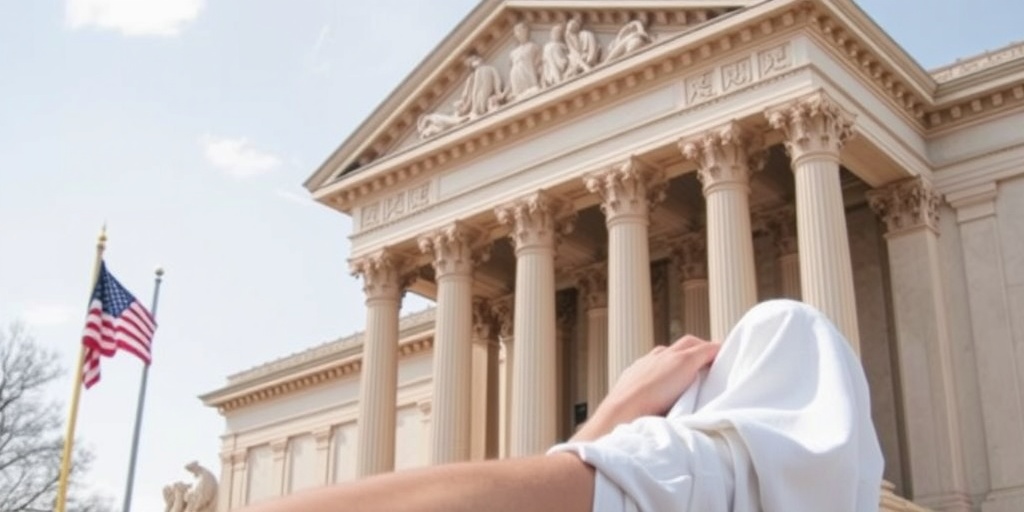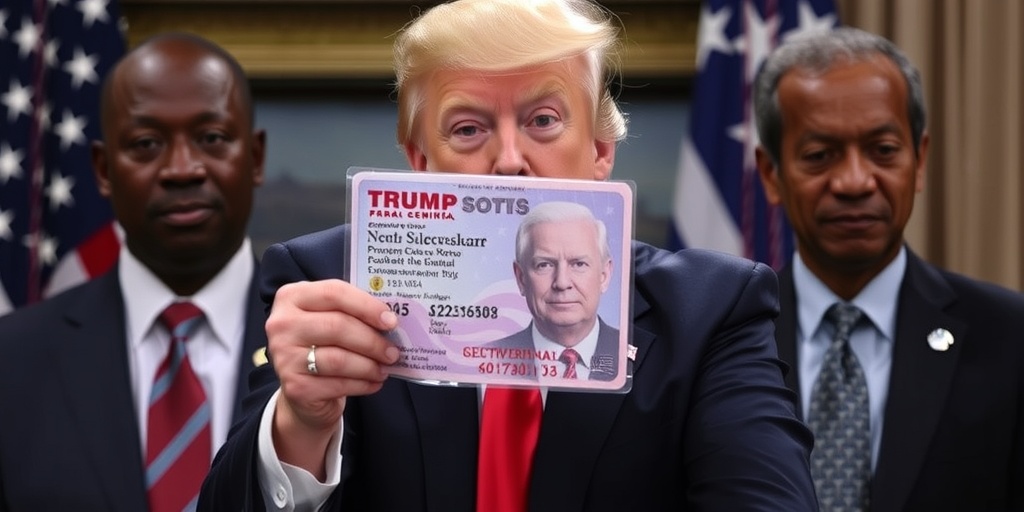Now Reading: Justice Dept. Lawyer Critical of Admin Placed on Leave
-
01
Justice Dept. Lawyer Critical of Admin Placed on Leave
Justice Dept. Lawyer Critical of Admin Placed on Leave

Suspension of Justice Department Immigration Lawyer Raises Concerns Over Due Process
In a significant development within the Justice Department, Erez Reuveni, a senior immigration lawyer, has been placed on indefinite leave following controversy over a deportation case that has drawn national attention. This decision came just one day after Reuveni defended the deportation of Kilmar Armando Abrego Garcia in court, a move that he later publicly questioned.
The suspension was initiated by Deputy Attorney General Todd Blanche, who accused Reuveni of failing to adhere to directives from his superiors. A letter detailing the suspension, which was obtained by The New York Times, indicates that Reuveni’s actions were perceived as detrimental to the interests of the Trump administration, which has taken a hardline stance on immigration policies.
Having served as a respected lawyer in the immigration division for 15 years, Reuveni was recently promoted and praised by his superiors for his work. Nevertheless, he found himself at odds with the administration’s policies when he expressed frustration regarding the unjust deportation of Garcia, particularly given that there was a court order in place allowing Garcia to remain in the United States.
During a Friday court hearing, Reuveni admitted that the deportation should not have occurred, as it lacked legal justification. Notably, Judge Paula Xinis, who presided over the case, commented on the government’s handling of the situation, stating that officials acted without “legal basis” and ordered the administration to reinstate Garcia by the end of the following Monday. The judge’s comments highlighted significant concerns regarding the due process followed in Garcia’s deportation.
Reuveni’s request for 24 hours to persuade the Trump administration to rescind the deportation was met with swift punishment. Less than a day later, Deputy Attorney General Blanche suspended him with pay, restricting his access to work-related emails and prohibiting him from performing any duties associated with his role. The letter accused Reuveni of conducting himself in a manner that was "prejudicial" to the administration’s interests, exemplifying the consequences faced by career officials who diverge from the directives of political appointees.
In a statement to the press, Attorney General Pam Bondi reinforced the stance of the Justice Department, emphasizing that all attorneys must advocate zealously on behalf of the United States. This directive underscores a rigid adherence to the administration’s immigration policy, which has frequently been criticized for its harshness and apparent lack of compassion.
The case surrounding Kilmar Abrego Garcia raises serious ethical and legal questions about the administration’s deportation policies. At just 29 years old, Garcia was alleged to have ties to MS-13, a notorious gang known for its violence and criminal activities. However, during the hearing, Judge Xinis noted that the government provided limited evidence to substantiate these claims, casting doubt on the rationale for his deportation.
The judge’s skepticism about the evidence presented against Garcia reflects a broader concern among legal experts regarding the Trump administration’s approach to immigration enforcement. In her remarks, Judge Xinis emphasized the importance of a robust legal process, arguing that accusations of gang affiliation should be substantiated by formal legal proceedings rather than left to administrative discretion.
Following Saturday’s hearing, the Justice Department requested a federal appeals court to stay Judge Xinis’ order to return Garcia to the United States, arguing that complying with the order was neither feasible nor appropriate. The administration’s position raises further questions about its commitment to due process, particularly in cases involving vulnerable individuals facing deportation.
Erez Reuveni’s suspension is emblematic of a troubling trend within the Justice Department, characterized by the dismissal or reprimand of career officials who resist politically motivated directives. His prior commendation for executing elements of Trump’s immigration agenda only illustrates the precarious situation faced by attorneys within the department.
The tension between upholding legal principles and navigating the political landscapes generated by the Trump administration’s immigration policies continues to unfold. As the judicial system grapples with the administration’s actions, the future of Reuveni and the key issues surrounding due process remain uncertain, with ramifications that could extend far beyond individual cases.
As legal battles over immigration enforcement proceed, the implications of this case may prompt a critical reevaluation of how policies are applied, ultimately shaping the landscape of immigration law in the United States. The outcome may also influence the professional integrity of legal officials who find themselves in positions of conflict between adhering to the law and following the orders of political superiors.
Stay Informed With the Latest & Most Important News
Previous Post
Next Post
-
 01New technology breakthrough has everyone talking right now
01New technology breakthrough has everyone talking right now -
 02Unbelievable life hack everyone needs to try today
02Unbelievable life hack everyone needs to try today -
 03Fascinating discovery found buried deep beneath the ocean
03Fascinating discovery found buried deep beneath the ocean -
 04Man invents genius device that solves everyday problems
04Man invents genius device that solves everyday problems -
 05Shocking discovery that changes what we know forever
05Shocking discovery that changes what we know forever -
 06Internet goes wild over celebrity’s unexpected fashion choice
06Internet goes wild over celebrity’s unexpected fashion choice -
 07Rare animal sighting stuns scientists and wildlife lovers
07Rare animal sighting stuns scientists and wildlife lovers




















